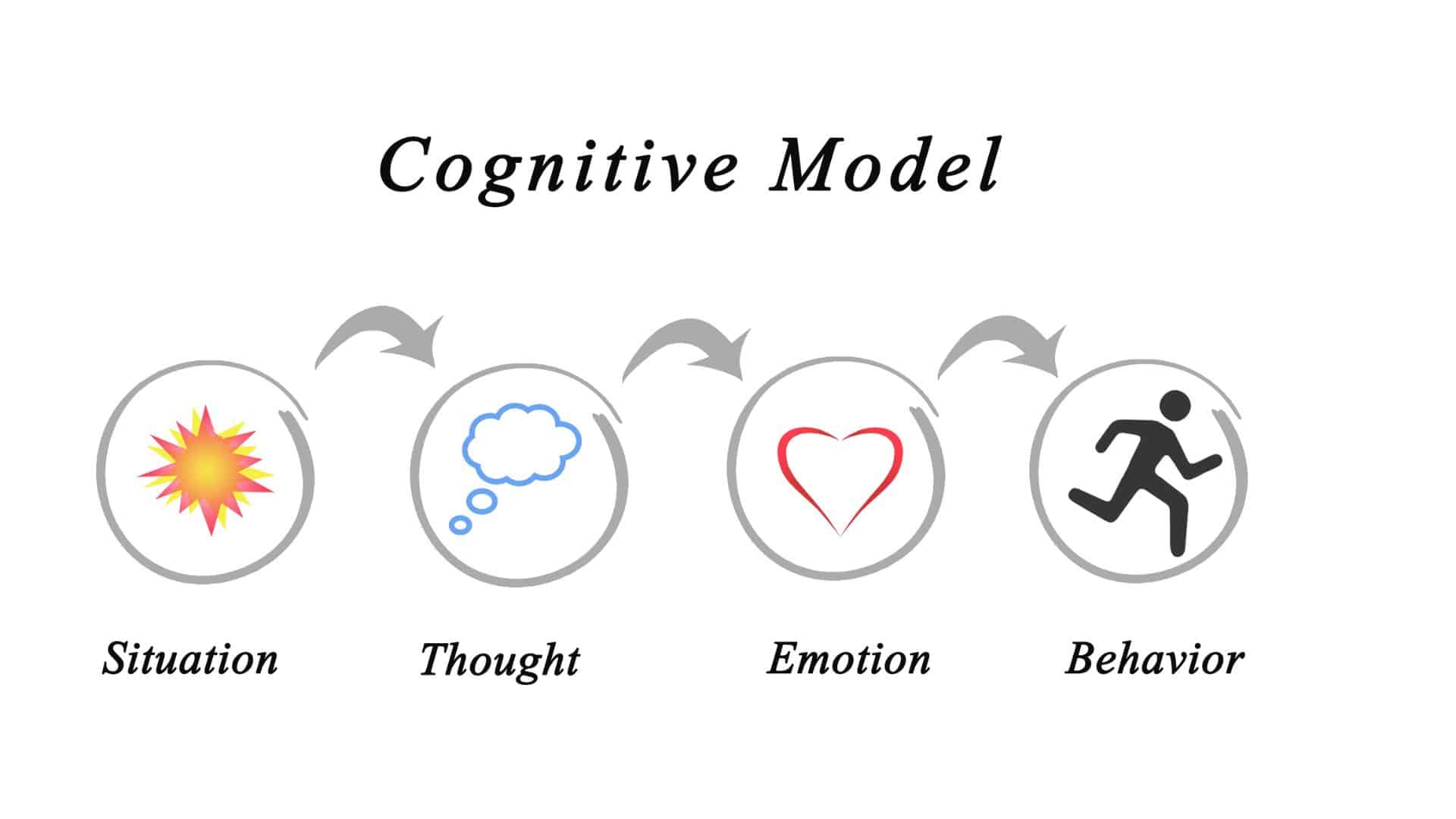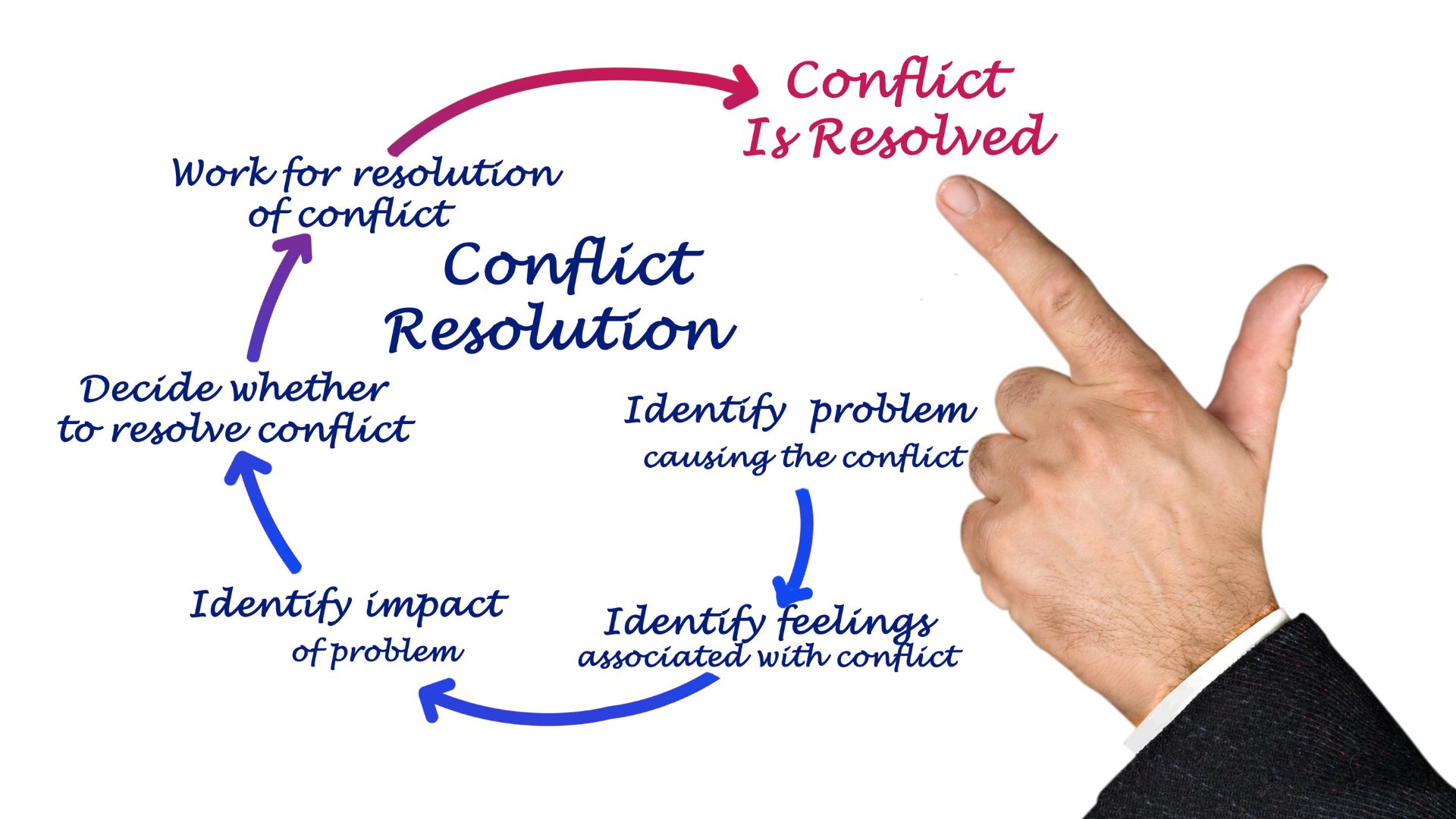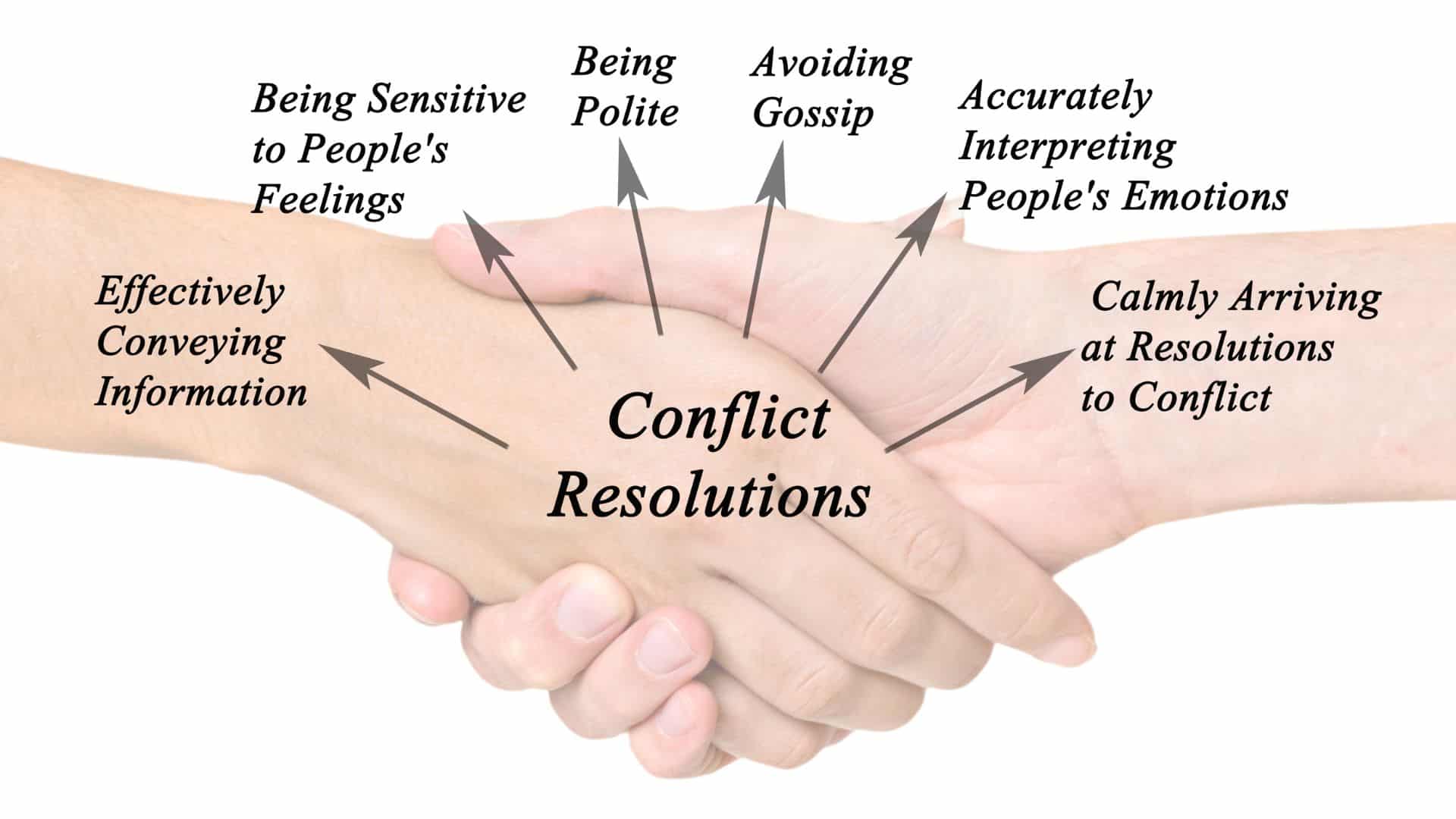What is Your Conflict Resolution Style? Navigate Difficult Situations with Ease by Understanding Conflict Styles

Undergoing a divorce can be one of the most emotionally challenging times in a person’s life. While conflicts are inevitable during this difficult time, they are not insurmountable.
Whether you’re considering divorce mediation over litigated divorce, or are already preparing for a California divorce mediation, it’s important to be mindful of the different conflict management styles you and your spouse can use to make the process as smooth and efficient as possible.
When faced with disagreements, most couples have a default conflict management style they fall back on that, if not recognized, can get in the way of approaching them in a more constructive manner. Understanding your own conflict management style, along with your spouse’s, can help you navigate difficult conversations with more compassion, and divert any negative feelings that would otherwise impact the final outcome.
Conflict is a natural and inevitable part of our lives. No two people will always agree on everything, and that can lead to uncomfortable situations, especially without the proper conflict management skills in place. However, not all conflict is bad! It’s often how two sides come together to create something new and better than what either had before that makes all the difference.
Enter the Thomas-Kilmann Conflict Mode Instrument (TKI), a conflict management assessment tool developed by Kenneth W. Thomas and Ralph H. Kilmann in the early 1970s, designed to measure an individual’s preferred method of handling conflicts between themselves and others, as well as their ability to adapt to different situations when necessary.
This blog post will provide an overview of the various styles of conflict management and how they can be applied to divorcing couples looking to reach an amicable resolution with their spouse.

The Thomas-Kilmann Conflict Mode Instrument (TKI)
What Is TKI?
The TKI allows us the opportunity to recognize the different styles of behavior when faced with conflict, while providing guidance on how to best respond in these situations. The model measures five conflict management styles – competing, avoiding, accommodating, collaborating, and compromising – and helps identify which strategy is most appropriate for a given situation. It also provides information on how effective each strategy might be in resolving a conflict.
How can couples best navigate difficult situations with ease?
There are a variety of approaches to conflict management that can be implemented before, during, and also after the divorce mediation process.
Let’s break down the main conflict management styles and look at how they can be implemented when going through a divorce.
There are a variety of conflict management approaches for navigating the challenges that arise throughout the divorce process. Depending on your goals, the nature of the conflict, and various circumstances, these conflict management styles may be implemented.

5 Conflict Management Styles to Help Alleviate Conflict
Avoidance as a Conflict Style
Depending on circumstances that may arise, this conflict management style aims to alleviate disagreements by avoiding issues altogether in order to maintain peace and harmony between everyone involved.
This avoiding conflict management style is often used in cases where there is no clear solution or if the situation could potentially become more heated if discussed at length. It involves avoiding confrontation altogether by simply refusing to engage in discussions about difficult topics or decisions.
This type of approach works well in situations where emotions are high and there is potential for things getting out of hand quickly.
Benefits of the avoiding conflict management style
This specific conflict management style may be beneficial during the following scenarios:
- When issues and disagreements seem trivial
- When neither spouse has power or can’t change
- When damages as a result of conflict outweighs its benefits
- In situations where one or both spouses need to reduce tensions, cool down, or regain composure
- When gathering information in a given moment is more crucial than making immediate decisions
- When disagreements and conflicts can be resolved more effectively with others
- When issues are symptomatic or tangential
In some cases, avoiding conflict altogether is the best way to resolve a dispute between two individuals. Avoidance doesn’t mean running away from difficult conversations; rather, it means taking some time away from each other in order to evaluate and process what has been discussed before coming back together with a calmer approach and better understanding of the situation at hand.
A break can allow both sides to clear their heads and come back with more clarity and perspective on how they want to move forward.
However, it’s important to remember that avoidance does not equate to resolution; rather, it simply delays the inevitable until both spouses are ready to have a civil discussion about the matters at hand.
Given the nature of this conflict style, it is essential to assess whether it is the best option in terms of how to manage conflicts that arise.
The main problem with this conflict management style is that it tends to lead to passive-aggressive behavior and resentment, which only serves to exacerbate any challenges at hand. This approach only serves as a temporary fix that may result in greater issues later down the road if left unresolved.
If you or your spouse find yourselves using this approach on a regular basis, consider speaking with a professional family therapist or family law mediator who can help you work through your disagreements in a more civil and constructive manner.
Accommodating Conflict Management Style
The accommodating conflict style involves one of the spouses feeling like they are sacrificing their own needs in order to keep the peace within the relationship. Instead of standing up for themselves, they choose instead to give in so that there won’t be any further tension.
This accommodating style may be used when someone feels overwhelmed by a situation, or simply wants to implement an avoidant conflict style in order to avoid confrontation altogether.
Although accommodating someone else’s needs may seem like the easiest way out at first glance, it usually leads to feelings of resentment down the line as one spouse begins feeling like they are being taken advantage of or that their needs are being ignored altogether.
This type of approach can be helpful in some situations, but it can also lead to resentment over time if one spouse’s needs are not taken into consideration enough by their partner as they are making efforts towards resolving conflict.
Competing Conflict Style
The competing style of conflict management is a win-lose approach that aims for one person to gain while the other person loses. In this case, one or both of the spouses emphasizes their own needs and disregards the needs of the other person, ultimately leading to negative results and uncompromising outcomes.
This type of conflict style is often characterized by a person’s desire to win an argument or prove that they are right. It maintains the mindset of winning at all costs and is best used in emergency situations or when a decision must be made quickly.
The competing conflict management style is not an ideal approach to resolving conflicts as it makes a significant impact on the relationship between the spouses and takes on more of a firm stance in the negotiation process. It disregards the underlying concerns of couples and can result in other conflicts that could have otherwise been avoided, and ultimately leads to hurt feelings and strained relationships.
If you implement this approach throughout the divorce mediation process, you may get what you want in the short term, but it will likely cause more tension and animosity in the relationship between you and your spouse in the long term. Conflict management styles based on this approach may end up causing a lot more damage in the long run, and generally do not reduce conflict, but rather escalate it.
Collaborating Conflict Style
The collaborative style of conflict management seeks to resolve conflicts through means of collaboration and cooperation. This approach looks at all aspects of a disagreement and encourages couples to find solutions that are mutually beneficial. In this style, couples can focus on finding common ground, rather than on who is right or wrong.
A collaborating style to conflict resolution also encourages both spouses to work together to identify the underlying causes of their differences and explore ways to address them.
This conflict resolution method involves both sides working together towards a mutually beneficial solution by sharing ideas, thoughts, and feelings about different aspects of their dispute. Collaboration allows both people involved in the conflict to feel heard while also having an active role in crafting a solution that works for everyone involved. It can also help build trust between two people who may have had difficulty communicating in the past.
Unlike most other conflict management styles, the collaborating style is a win-win approach where both spouses work together to find a mutually beneficial solution that meets everyone’s needs. It involves active listening from both sides so that each person can clearly understand the other’s point of view before reaching an agreement that works for everyone involved. In order to do this effectively, there must be mutual respect and open lines of communication and transparency throughout the entire process.
Compromising Conflict Style
Considered as one of the most popular strategies for resolving conflicts in divorce cases, the compromising conflict management style is a middle-ground approach which involves meeting halfway and finding solutions that both spouses can live with even if neither one gets exactly what they want out of the outcome. During negotiations, it requires couples to compromise so that each person is able to express their interests without feeling triggered by the other side’s comments or requests.
A compromising style to conflict resolution can help resolve difficult disputes while still allowing couples to maintain some degree of satisfaction with the outcome and achieve a win-win solution, and divert what could have amounted to a lose-lose scenario.
Compromise works best when there are two reasonably flexible individuals who are willing to meet halfway on their issues. The goal here is to find areas where you and your spouse can benefit from a solution.
Compromising allows both sides to meet somewhere in the middle and reach an agreement that works for everyone involved.
Benefits of Compromising Conflict Management Style
A compromising style of conflict management is essential to consider under the following circumstances:
- When considering which goals are moderately important
- When divorce becomes a “power play” and spouses with equal power are strongly committed to mutually exclusive goals
- In order to achieve a quick solution or temporary settlement when complex issues arise
- When matters become time consuming and spouses need to arrive at expedient solutions under pressure of time
- Under circumstances where competition or collaboration fails
Whether you utilize the approach of a competing conflict management style, accommodating style, avoiding style, collaborating style or middle ground compromising style to conflict resolution, communication is key to the success of your divorce mediation process! It’s essential to not only to express your own thoughts and feelings, but also listen carefully and consider your spouse’s views in order to understand them.
When difficult situations are approached with respect and open-mindedness, resolutions are made more quickly and efficiently than if utilizing a competing style of conflict resolution. Divorce can be challenging enough without adding unnecessary stress; use these conflict management techniques as tools for creating a peaceful environment during this challenging time in your life!

The Balakhane Mediation Method to Approaching Difficult Situations
At Balakhane Mediation, we provide a safe space for couples undergoing a divorce. From facilitating dialogues for deeper understanding, and thinking of new ideas and creative solutions towards handling disagreements— we strive to help couples with conflict resolution efforts that will lead to their final solution and win-win situation.
If you’re interested in taking the next step in the divorce mediation process, Balakhane Mediation offers a complimentary mediation consultation session designed to help couples avoid conflict and mitigate unpleasantness through thorough assessment of each person’s needs.
Get started today by contacting 424-235-4173 and allow us to help you plan the next steps in the divorce mediation process.